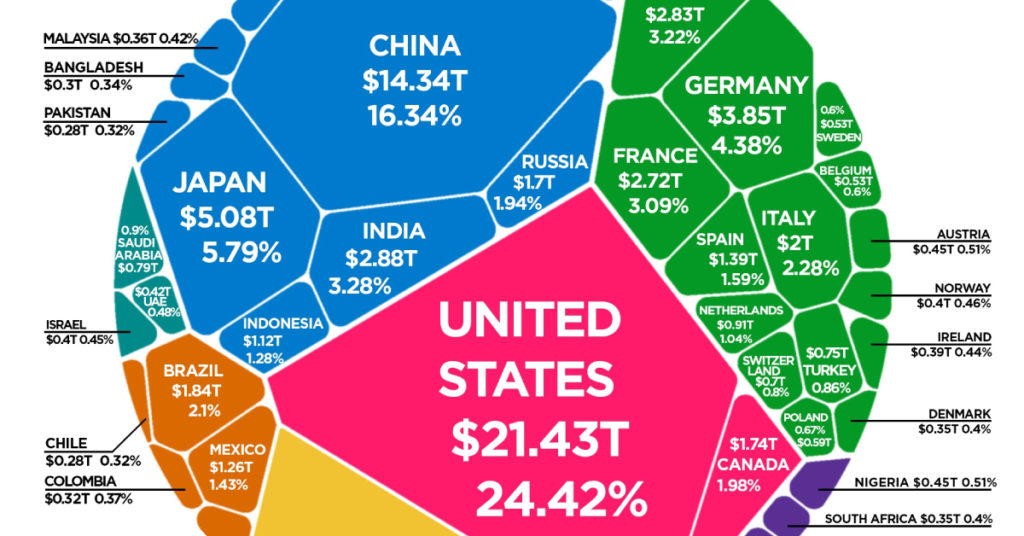
EU clearly needs more self-confidence and internal loyalty, despite the member nation state nature, in order to lead the world with its positives values. Sharing my daughter Jennifer’s concise essay for Sigmund Freud University of Law which the professor found “impressive.”
“Global player” refers to a “worldwide actor,” participant in global politics in all or several important dimensions of interest assertion. In reality, the economic plays an important role here, as does the assertion of interests in foreign geographies, including by military means, including cyber and intelligence. It is about global power projection capability. A state’s position as a nuclear power still has meaning.
A true global player is very well positioned in worldwide cmparison and one of the leaders in a majority of sectors, in the mix of the different sectors. At the same time, there are sectoral global players.
What makes the U.S. and China global players?
The U.S. has been by far the leading global player since the end of the Cold War. They have used this long period to extend their influence, system, ideology, trade space and legal reach across the globe, supported by hegemony in life style and (entertainment) culture. In recent years, especially under Trumpism, the U.S. has moved in an opposite direction, toward compartmentalization and crass egoism, directed also against the global interest. What global role the U.S. will play under Biden remains to be seen.
Since joining the World Trade Organization, China has played a decisive role in determining the global market. Trade is flourishing and Chinese companies are investing worldwide, shipping goods all over the world. The communist regime has replaced the United States as the promoter of free world trade. Nevertheless, China still lags behind economically despite rapid catch-up.
Is it fair to compare the EU with the U.S. and China as world power factors?
As a supranational organization, the European Union differs significantly from the two leading world powers in many respects. It is precisely a confederation of states with – especially in power politics – sovereign nation states, not a federal state, not the “United States of Europe” and or a regime, both of which are operationally managed extremely centrally. The states of Europe, the birthplace of the nation-state, will hardly ever be imaginable with any other model. The member states are extremely diverse, including in terms of their history, world power political orientation and (active) role.
So what does the EU lack to be a world power like the U.S. or China?
As shown above, a great deal.
The EU is rooted in a democratic peace model from the tragic experiences of the first half of the 20th century. This essence alone contradicts the hard orientation towards the role of a world power. Accordingly, the EU does not pursue an active foreign, global power policy. On the one hand, several large member states consider themselves global players and act as nuclear powers with foreign interests; on the other hand, the EU as an organization lacks indispensable elements for world power aspirations. These include, despite the young CFSP and EDA, military structural and operational assets. Among the member states are NATO members as well as neutral countries.
Out of and beyond the idea of peace, the EU is first and foremost an economic world power. It is also a further development of the first ECSC free trade area, which removed barriers between states. The issues, objectives and policy areas on which it is focused correspond to this fact. World power politics and military strength are not among them. EU imports and exports or the euro, on the other hand, play a global role. The single market works.
The EU certainly is a global player – with a special role
However, it must be noted that the EU is very much a global player – albeit of a different kind. One could say that the Union represents a progressive approach that challenges and replaces old concepts of power.
In a number of important areas, the European Union is an absolute leader. No political entity in human history has managed not only to establish peace, democracy and human rights as values, but to realize them to such an extent in terms of stability (a permanent endeavor in view of a few outliers).
Climate policy, for all its shortcomings, is exemplary worldwide. Technologically and scientifically, there is a need to catch up as well as potential. In the social sphere, in the health care system and medically, the EU is in an excellent position. It has lost a lot in dark phases, but spiritually and culturally, Europe is a power today.
From the point of view of central control, efficiency, speed of decision-making and implementation, and unlimited belief in progress, there is certainly much to criticize about the EU. Its global limitation in terms of power politics can be seen as a weakness. But one must be clear that these are aspects that are offset by great strengths. The EU has its history – and enormous potential to fulfill an important function as a role model for the world in the future.
This short essay was written by Jennifer Schranz for the course “EU Law” at Sigmund Freud University’s faculty of Law in February 2021.